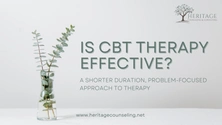Symptoms Services
Depression
Depression can be described as the sense of hopelessness, worthlessness, and inability to express even simple pleasures. The National Institute of Mental Health describes depression as a common and serious mood disorder with symptoms that may affect how one feels, thinks, and handles day-to-day activities. Psychiatry.org states depression affects one in fifteen adults in any given year and one in six people will experience depression at some point in their lives. Studies show depression as being a significant determinant of quality of life as it can cause feelings of sadness and/or loss of interest in activities and can also lead to a variety of emotional and physical problems. Psycom.net has quotes from individuals who have depression describing their thoughts and feelings. Depression is described in some of the quotes as not being able to control one’s thoughts instead thoughts control you. Another description is the feeling of numbness to life and emotions. Depression is a serious illness but can be treated.
If you feel you or a loved one may be suffering from depression give us a call at (214) 363- 2345.
What are the common symptoms of depression?
Symptoms of depression may include:
Feelings of loneliness
Feelings of sadness, emptiness, or hopelessness
Loss of interest in hobbies
Changes in appetite or weight changes unrelated to dieting
Trouble sleeping or sleeping too much
Feelings of worthlessness
Difficulty thinking, concentrating, or making decisions
Thoughts of death or suicide
Angry outbursts, irritability, or frustration over small matters
Many individuals with depression report symptoms severe enough to cause problems at work, school, social activities, or in their relationships.
How can therapy help with depression?
Therapists and psychologists are highly trained mental health professionals with experience in treating individuals with depression. There are several different approaches to psychotherapy that have been shown to help individuals recover from mental illnesses. Psychotherapy can help individuals explore life events that contribute to their depression and guide them on a path to change, accept or adapt to their situation (www.apa.org). Counselors help individuals set realistic goals, and identify distorted thought processes or unhelpful behaviors that contribute to feelings of depression. They also help the individual develop coping skills with their symptoms and issues. Finally, they can also help to identify or prevent future depressive episodes.
Cognitive Behavior Therapy is an evidence-based therapy that has been found to be effective in the treatment of depression. Cognitive-Behavioral Therapy, CBT, is based on the idea that individuals with depression have thoughts that are characterized by dysfunctional negative views of themselves, their experiences, and their future. With CBT the client works with a mental health therapist in a structured format attending a number of sessions where the individual is helped to become aware of any negative thinking allowing them to approach challenging situations with a response that is more effective. CBT can be helpful for individuals that are seeking help with mental health illnesses including depression, post-traumatic stress disorder, or disordered eating. CBT is an approach to psychotherapy that allows the client to quickly identify and cope with specific challenges and as a result, fewer sessions are needed to address emotional challenges.
For example, CBT is a tool that is helpful for the following:
Managing symptoms of depression
Preventing future depression episodes
Treating mental illness when medications aren’t a good option
Learning coping techniques for stressful life situations
Identifying ways to manage emotions
Resolving conflicts in relationships and learning communication skills
Coping with loss or grief
Overcoming emotional trauma related to abuse
Coping with a physiological illness
Managing chronic physical symptoms
Individual therapy is also an option, marital/couples therapy is helpful for spouses and partners to understand why their loved one has depression, what changes in communication and behaviors can help, and what coping mechanisms may work. Family therapy may work for those who view their family as a key part of their lives and can function as a team that helps individuals with depression get better (https://my.clevelandclinic.org). Therapy can sometimes be helpful for family members to understand their loved one’s journey and how they are navigating through it and what they can do to help.
Interpersonal therapy is a different type of therapy that primarily focuses on the behaviors and interactions with family and friends of a clinically depressed individual. The goal of this therapy is to improve communication skills and increase self-esteem. Interpersonal therapies offered here at Heritage to help resolve depression include:
Loss/ grief counseling
Relationship counseling
Life transition
Role transitions such as parenting counseling
For more information on different types of therapy for depression please visit our services page.
It can be difficult to take the first steps toward finding help and we here at Heritage go above and beyond to provide quality counseling services for those who need help. We offer services in CBT therapy, grief counseling, relationship counseling, life transition counseling, and a variety of other types of therapy that can be used as a tool to overcome depression. Our therapy services are offered in Dallas, Plano, and Austin, and we offer telehealth appointments as well. If you or a loved one are experiencing signs or symptoms of depression give us a call, we can help you navigate your way to finding the clinician that best suits you, and the type of therapy that is most accommodating to your needs.
For more information or to schedule an appointment please contact us:
Phone: (214) 363- 2345
FAQ About Depression
How do counselors help with depression?
Counselors help by providing therapy services with different approaches depending on the client's personal challenges and symptoms. Therapy, such as interpersonal therapy or Cognitive- Behavioral Therapy, can be useful to develop tools that allow the client to overcome challenges and work on coping mechanisms.
What type of therapy is good for depression?
CBT therapy allows the client to identify and cope with specific challenges at a relatively faster rate than other therapies. Not every individual struggling with depression will benefit best from CBT therapy, other therapies are offered by clinical counselors for those who would benefit from other forms of therapy.
Is there a cure for depression?
Being cured from an illness would mean for it to be gone permanently, an illness that doesn’t go away permanently would require treatment for management. There is no cure for depression, but there are several clinically effective treatments for those that suffer from depression, many of which are offered here at Heritage.
Related Blogs

6 Tips to Help Manage Social Anxiety
What is social anxiety? Anxiety has become a prominent topic in today’s world. Social anxiety is a specific type of anxiety that involves a fear of social situations where an individual could experience...
Published on Jul 14, 2022

988: The New Three-Digit Suicide Prevention Hotline
What is the 988 Suicide and Crisis Hotline? On July 16, 2022, the National Suicide Prevention Lifeline number transitioned to just three digits: 988 . The new 988 suicide prevention hotline replaces the...
Published on Jul 20, 2022

How to Set Healthy Boundaries in Your Relationships
“Daring to set boundaries is about having the courage to love ourselves even when we risk disappointing others” — Brene Brown What are boundaries? Boundaries are the personal limits we set within our...
Published on Aug 3, 2022

Seasonal Depression
As Daylight Savings begins, we tend to notice an upswing in seasonal depression. Seasonal affective disorder (SAD), also known as seasonal depression, is a type of depression triggered by a change in...
Published on Nov 8, 2022

Now Offering Telehealth Therapy in 39 States
My name is Dr. George A. Ball, and I am a Licensed Clinical Psychologist here in Texas where I have been working with clients for almost 15 years and have been licensed in the state of Texas since 2016. I...
Published on Dec 6, 2022

The Effects of Social Media on Mental Health
Social Media’s Connection with Mental Health With the advancement of technology and the wide use of the internet, social media has become a core aspect of the lives of individuals. In 2016, more than 90...
Published on Feb 9, 2023

Is CBT Therapy Effective?
Cognitive Behavioral Therapy is an evidenced-based treatment for a variety of mental disorders. CBT has two underlying tenets: our thoughts have an impact on our emotions and behaviors, and our behaviors...
Published on Mar 3, 2023

Does Neurofeedback Therapy Help with Anxiety?
What is Neurofeedback Therapy? Neurofeedback is a science-based intervention using computer-based software that produces immediate feedback to the brain as it assesses brainwave activity, helping the brain...
Published on Apr 13, 2023

What is Postpartum Depression?
Postpartum Depression Postpartum depression (PPD) is an extreme mood disorder that can affect women after childbirth. It is a type of depression that can occur within the first few weeks or months after...
Published on Apr 28, 2023

Social Media’s Effect on Body Image
Social Media was created as a platform for individuals to safely express themselves; however, as the years have gone on, the standards of social media have changed. Social media can be a powerful tool for...
Published on May 5, 2023

What are Intrusive Thoughts and How Can We Manage Them?
What are Intrusive Thoughts? Experiencing thoughts or images that seem to pop up out of nowhere and are difficult to stop thinking about can be a scary, but common occurrence. Some can experience minor...
Published on May 12, 2023

Social Media Addiction, When to Seek Help
Social media has been around for a long time, but it's only recently that we've started to better understand the extent of its impact on our lives. Anyone with a smartphone can attest that social media can...
Published on May 19, 2023

10 Warning Signs of Depression in Teens
Mental health issues have gained significant attention in today's fast-paced and interconnected world. Among these, depression is a condition that affects millions of people worldwide, cutting across age,...
Published on Jun 14, 2023

Is COMP360 a Promising Treatment for Treatment-Resistant Depression?
Treatment-Resistant Depression Depression is one of the most common and fastest-growing mental health disorders in our modern world. With over 320 million people suffering globally, finding effective, safe...
Published on Jul 14, 2023

How to Stay Motivated During the Summer
Motivation is essential to why we do certain activities and avoid others. It is a central part of why we are able to achieve our goals and maintain focus on them without being distracted, but it can be...
Published on Jul 18, 2023

What is Imposter Syndrome?
What is Imposter Syndrome Imposter syndrome is a cognitive distortion that can be described as the persistent inability to believe that one’s success is deserved or legitimately achieved as a result of...
Published on Sep 14, 2023

Neurofeedback Therapy: A Client's Progress and Insights
Neurofeedback therapy , also known as EEG (Electroencephalogram) biofeedback or neurotherapy, is a non-invasive therapeutic technique that aims to help individuals gain better regulation over their brain...
Published on Oct 20, 2023

Understanding the Four Attachment Styles in Relationships
What is attachment? Attachment is how we view security, comfort, separation, and sharing space with others. Many times it is easy for individuals to feel a certain way in relationships, yet remaining...
Published on Dec 1, 2023

Nurturing Healthy Boundaries: A Guide to Harmonious Family Relationships
The holiday season brings with it a sense of togetherness and shared moments with family, but it can also pose challenges, particularly when presented with difficult family situations. In addition to...
Published on Dec 21, 2023

Counseling Options for Seasonal Affective Disorder
Seasonal Affective Disorder (SAD), often referred to as seasonal depression, is a type of mood disorder that follows a seasonal pattern. It typically occurs during the fall and winter months when daylight...
Published on Jan 19, 2024

Navigating Postpartum Depression
Bringing a new life into the world is a momentous occasion, but it also marks the beginning of a challenging journey for many mothers. Acknowledging the prevalence of postpartum depression (PPD) is crucial...
Published on Feb 2, 2024

The Pitfalls of Teen Self-Diagnosis Using Social Media
In today's digital age, social media platforms have become a hub for entertainment and connection. Among these platforms, TikTok has gained immense popularity, particularly among adolescents, with...
Published on Feb 16, 2024

What is EMDR Therapy?
In the landscape of mental health treatment, there's a remarkable approach that stands out for its efficacy in addressing trauma and related conditions: Eye Movement Desensitization and Reprocessing (EMDR)...
Published on May 31, 2024

The Impact of Social Media on Mental Well-Being
In today's digital age, social media has become an integral part of our lives, offering opportunities for connection, communication, and community. However, for individuals struggling with their mental...
Published on Jul 15, 2024

10 Common Mental Health Struggles in the Summer
The summer months can bring the invitation to live easily and enjoy the long, sundrenched days it brings. With changes in routines and school out for the summer, students and families can enjoy having more...
Published on Jul 30, 2024

10 common FAQs on Neurofeedback with Heritage Counseling
Neurofeedback (NFB) is a form of therapeutic neuromodulation that involves learning to optimize brain function. “Neuromodulation uses real-time information from the brain to promote stabilization in neural...
Published on Dec 10, 2024

How to Handle Work-Related Anxiety: A Guide to Seeking Counseling
Work-related anxiety is a common issue that affects countless individuals across various industries. The demands of tight deadlines, high expectations, long hours, and the pressure to perform can create an...
Published on Jan 21, 2025

Valentine’s Day Stress: Managing Negative Emotions Around the Holiday
Valentine's Day is often portrayed as a celebration of love and romance, yet for many individuals, it can be a source of stress, anxiety, and emotional distress. Whether you are in a relationship, single,...
Published on Feb 7, 2025

Fan or Fanatic? Understanding the Emotional Toll of Sports Fandom
Sports fandom is an integral part of many people’s lives, offering excitement, a sense of belonging, and emotional highs. However, when enthusiasm for a team turns into obsession, it can take a toll on...
Published on Feb 17, 2025

Discover Heritage Counseling & Consulting in Austin, Texas
At Heritage Counseling & Consulting, P.A., our Austin office is dedicated to providing exceptional mental health care tailored to each individual's unique needs. Conveniently located off Highway 360 near...
Published on Apr 3, 2025